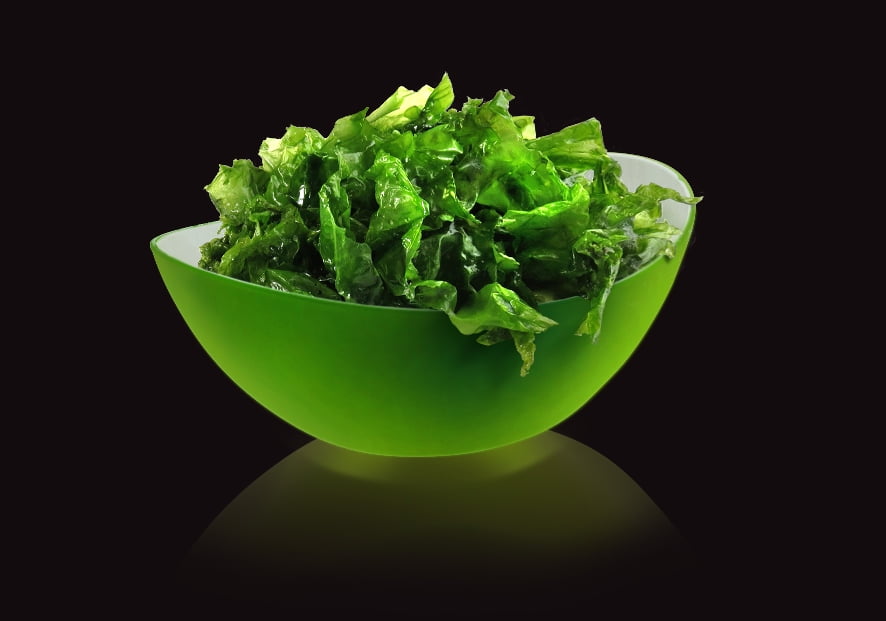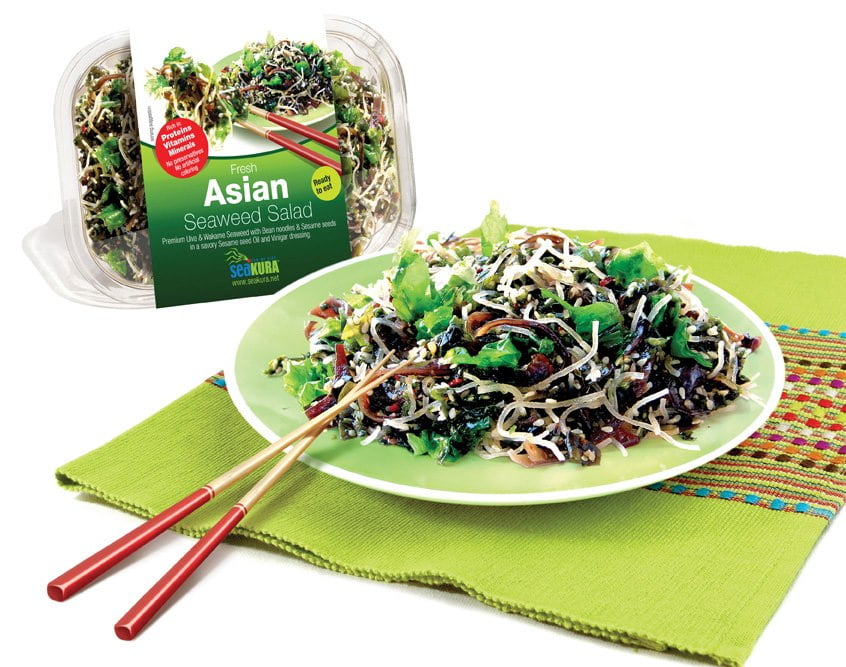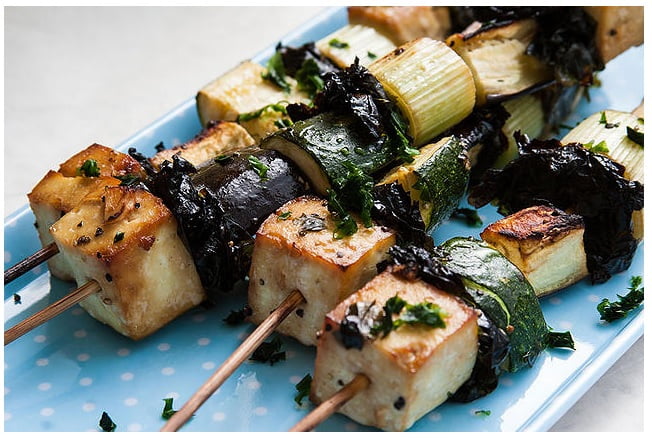It’s fresh, nutritious, organic, and has officially been labeled as the up-and-coming superfood. And no, we’re not talking about kale. Seaweed is finally making its mark on the world, and one Israeli company is helping this natural treasure make its way to the top of the food pyramid.
Seakura, an Israeli seaweed company established in 2006, is considered a world leader in developing, harvesting, and manufacturing the leafy algae. Unlike seaweed that’s grown in salty seawater and is later dried, Seakura is one of a few companies in the world that grows seaweed outside the ocean and sells it fresh and ready to eat.
SEE ALSO: Fueling The Future With Algae?
While most of the world’s seaweed is collected in the ocean, Seakura organically grows the vegetable in controlled pools using purified Mediterranean seawater. On Seakura’s farm just north of Tel Aviv, the company produces seaweed with greater nutritional values than seaweed grown in the ocean – year-round. The firm, which also operates an on-site research institute, is composed of a small yet highly skilled team of 15 field professionals, including an aquamarine biologist and two marine biologists.
Thanks to Seakura’s meticulous aquaculture technology (the farming of aquatic organisms), one serving of this superfood is said to boast double the amount of protein, iron, and fiber found in dried seaweed harvested from ocean water. For every 100 grams, Seakura’s “sea lettuce” contains 28 grams of protein, 53.8 mg of Iron, 2.73 mg of Vitamin B12, 21.9 mg of Vitamin C, and 238 mg of magnesium. In comparison, generic dried seaweed contains approximately two grams of protein and only one gram of dietary fiber, according to eatgoodfood.org. “There are also three times the carotenoids in our seaweed,” Seakura CEO Moshe Rivosh tells NoCamels.
Avoiding contamination by purifying seawater
For nearly a millennium, coastal people consumed algae, but in recent years, oil spills, sewage, industrial and radioactive wastes have contaminated it. Seakura avoids such concerns by growing its product in purified water, with complete control over elements such as water temperature and acidity levels.
“Seaweed has the ability to absorb water, so if the water is dirty, the seaweed is dirty, too,” Rivosh explains. “But our water is purified. It’s pure water without any dirt or heavy metals.”
SEE ALSO: Designer Uses Seaweed To Create Lamps
Sign up for our free weekly newsletter
SubscribeThe standard seaweed-harvesting protocol entails growing the algae in small pools, equipped with filters and sensors that monitor water quality. Over time, Seakura’s team transfers the plants to larger pools. Thanks to its cultivating procedure, the company says it is able to naturally manipulate and raise the levels of proteins, fiber and vitamins found in the kelp.
Rivosh hopes seaweed will be added to our diets and become a food staple – not just wrapped around sushi rolls. Thanks to the overwhelming amount of nutrients found in seaweed, it’s also an ideal alternative for vegans and vegetarians.
Affordable and nutritious, fresh seaweed can be added to any recipe
Known for its versatility, fresh seaweed can be added to salads, sandwiches, and even pasta. “Seaweed is also considered a fresh herb – you can add it to anything you create in your kitchen,” Rivosh says. “It’s also very good in quiche!”
Seakura’s products are also affordable. The firm’s staple sea lettuce is priced around $2.5 per 100 grams, as opposed to $10-$12 – the cost of 100 grams of dried seaweed sheets.
Seakura has already made its grand debut in the European market, where the kelp can be found in several health and organic food stores. In the UK, for example, it can be found at Planet Organic; and high-fashion department store Harrods serves Seakura seaweed in its salads.
The leafy algae are also sold across Italy, Belgium, the Netherlands and Israel. The company is now increasing production and working on new recipes. And, its seaweed experts are about to bring a taste of Israel to the UK, with a new product – hummus with seaweed!
Photos: Seakura, Ryan McDonald
Related posts

Israeli Medical Technologies That Could Change The World

Harnessing Our Own Bodies For Side Effect-Free Weight Loss

Missing Protein Could Unlock Treatment For Aggressive Lung Cancer









Facebook comments